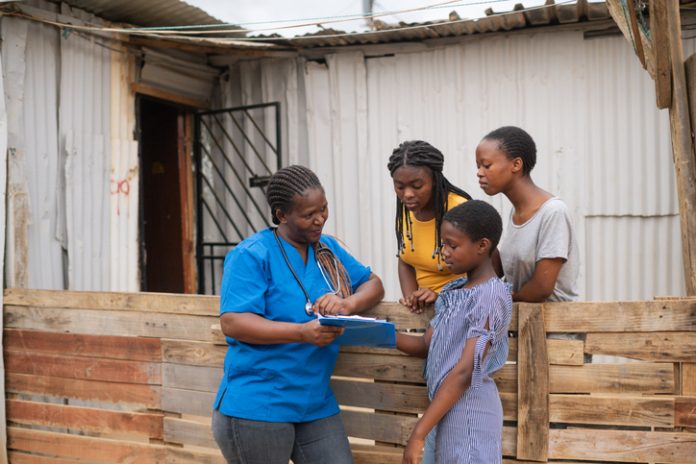Zisis Kozlakidis from the World Health Organization’s International Agency for Research on Cancer and Wuchlim Kourk from the Institut Pasteur du Cambodge examine the value and implementation of self-care interventions
Self-care is often defined as the ability of individuals, families, and communities to maintain their own health and, in doing so, prevent disease and cope with illness and disability with or without the support of a healthcare worker. It is estimated that up to half of the world lacks complete access or regular access to essential healthcare services. Therefore, the concept of self-care was developed, and interventions were recommended by the World Health Organization (WHO) for every country and economic setting as a critical path to ensure that people have access to at least some basic form of healthcare. To this end, self-care interventions can:
- empower individuals and communities to manage their health and wellbeing;
- strengthen national institutions with efficient use of domestic resources for health; and
- improve primary healthcare and contribute to achieving universal health coverage.
Implementing self-care by individuals
It is important to note that self-care interventions do not replace health systems. On the contrary, self-care interventions act in addition to health systems, complementing and improving universal healthcare coverage, as self-care interventions can reach people in humanitarian emergency situations and improve some basic aspects of healthcare and wellbeing. For example, self-care interventions include evidence-based, quality drugs, devices, diagnostics, and/or digital products, which can be provided fully or partially outside formal health services and used with or without healthcare workers being present. Such drugs can include over-the- counter availability of some contraceptive products, pregnancy tests, HPV (Human Papillomavirus) and STI (Sexually Transmitted Infections) self-sampling and HIV (Human Immunodeficiency Virus) self-tests, and self- monitoring of blood pressure and blood glucose.
Self-care is an important additional approach, as the care of each person, with regard to the self-care interventions, includes their individual circumstances, needs, and desires across their whole life course and adapts to the environment within which they live. Additionally, during the major disruptions to the normal functioning of the national healthcare system, caused frequently by health emergencies due to natural disasters, e.g., floods, earthquakes, etc., self-care interventions can provide an important extension of actions to healthcare facilities or health worker-based services.
Implementing self-care as a policy
The WHO’s framework on self-care interventions focuses on two approaches, ‘people-centered’ and ‘health systems,’ supported by the key principles of human rights, ethics, and gender equality. (1) Self-care interventions can be introduced as a policy at a national level; however, to be successful, they need to be connected with digital platforms and technologies and added to the education of healthcare workers. Furthermore, both health and digital literacy are essential for the uptake of self-care interventions. In particular, in the post-pandemic world, digital literacy provides the basis on which individuals are enabled to play an active role in improving their own health. It is important to emphasize that even though self-care policies may be introduced, due to the inherent nature of ‘self’ in the implementation of these policies, there may exist variation in adherence and, as such, anticipated outputs. For example, providing awareness and information in isolation is insufficient to drive behavioral change. They would need to be integrated into the motivations and expectations of the individuals.
Perspectives on integration into health policies
The key strategy for introducing or scaling up self-care interventions is to make them available safely and appropriately by assessing and ensuring an enabling environment where risks and risk perception are minimized and well-managed. An enabling environment requires action beyond the health sector, involving, for instance, the education, justice, and social service sectors, because self-care interventions are mostly accessed and/or used outside formal health services.
The potential challenges that need to be addressed when promoting and generating the demand for these interventions are the use of unregulated and substandard products, incorrect or unclear health information, lack of access to health workers and/or health facilities (in-person or virtual ones) for guidance or management of side effects or complications. One of the biggest challenges is ensuring that the guidelines are available to those who need them and that they do not place added financial burdens on individuals. In implementing the WHO guidance, countries can adapt the recommendations to the local context, taking into account economic conditions, existing health services and healthcare facilities, and the needs and rights of underserved populations.
For instance, Nigeria was the first country to adopt the self-care guidelines of WHO. Its national guidelines focus on self-care and sexual, reproductive, and maternal health. It was established in 2020 by the Federal Ministry of Health Nigeria, leading to nearly half of the states having committed to implementing this guideline in 2022. (2) In another example, the Ministry of Health and Family Welfare, Government of India, has issued a policy with detailed guidelines on how to make self-care kits available free of charge at all public health facilities. These kits were developed with technical support from the WHO Country Office in India and launched in April 2023, consisting initially of condoms, emergency contraceptive pills, and pregnancy tests. (1, 3)
Self-care interventions are crucial in extending and perhaps improving universal health coverage. This should motivate countries to adapt and integrate existing self-care guidelines into a healthcare system based on the economic conditions, health system structure and facilities, and the demands and rights of the population. The potential challenge in implementing these interventions is ensuring they are accessible to all people in need without adding any financial or other burden on individuals.
References
- Narasimhan M, Karna P, Ojo O, Perera D, & Gilmore K. Self-care interventions and universal health coverage. Bulletin of the World Health Organization. 2024; 102(2):140.
- White Ribbon Alliance. Nigeria is the first country to adopt national self-care guidelines. Available at https://whiteribbonalliance.org/stories/nigeria-first-country-to-adopt-national-self-care-guideline/, Accessed 08 March 2024.
- World Health Organization. Self-care intervention for health (2022). Available at https://www.who.int/news-room/fact-sheets/detail/self-care-health-interventions, Accessed 04 March 2024.











